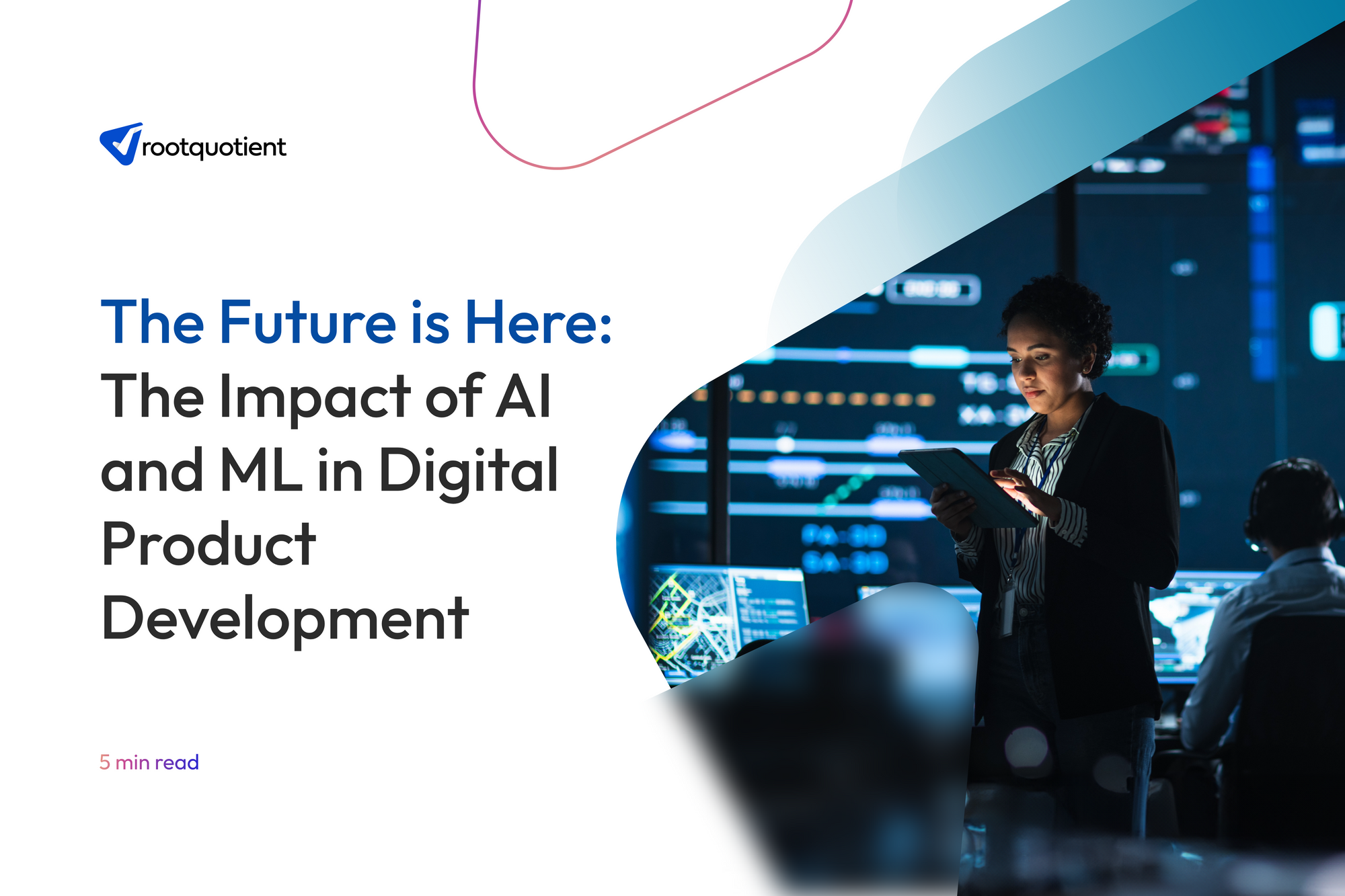Machine
Learning
Utilizing advanced machine learning to unlock insights and drive automation. Our solutions leverage predictive modeling and deep learning algorithms for informed decision-making.

Our Machine Learning Services
Predictive Modeling
Employing advanced statistical techniques and ML algorithms to analyze historical data, predict future outcomes, and make informed decisions in various domains.
Natural Language Processing (NLP)
Utilizing machine learning and computational linguistics to interpret human language, enabling sentiment analysis, text summarization, and language translation.
Computer Vision
Leveraging deep learning models to extract insights from visual data, enabling tasks like object recognition, image classification, and facial recognition for applications.
Recommendation Systems
Applying collaborative filtering and content-based algorithms to analyze user preferences, offering personalized recommendations for enhanced user engagement.
Anomaly Detection
Implementing ML techniques to identify unusual patterns or outliers in data, enabling early threat detection in cybersecurity, fraud detection, and predictive maintenance systems.
Intelligent Automation
Integrating machine learning and RPA to streamline tasks and workflows, enhancing efficiency and productivity while reducing human intervention.

Smart Assessments for Hiring and Certification
Deep Learning Solutions
Neural Network Development
Expert Model Selection
Rigorous Data Validation
Interpretability and Explainability
Regulatory Compliance and Data Security
Discover the Difference with Rootquotient
Data Collection and Preprocessing
We meticulously gather relevant data from diverse sources, ensuring accuracy and completeness. Preprocessing involves cleaning, scaling, and encoding data to make it suitable for modeling, ensuring high-quality inputs.

Feature Engineering
We engineer features to capture essential information from raw data, enhancing model performance and interpretability. This step involves transforming, selecting, and creating new features to extract meaningful insights.

Model Selection and Training
We select appropriate machine learning algorithms and train them using the prepared data, optimizing model parameters to achieve the best performance.

Evaluation and Validation
We rigorously evaluate model performance using various validation techniques such as cross-validation and holdout validation, ensuring reliable performance in real-world scenarios.

Hyperparameter Tuning
We fine-tune model hyperparameters to optimize performance and prevent overfitting, systematically adjusting parameters to achieve the best balance between bias and variance.

Deployment and Monitoring
We deploy trained models into production environments, where they make predictions or automate tasks. Continuous monitoring allows us to assess model performance, detect drift, and retrain models as needed to maintain effectiveness.


Conducting in-depth studies to understand user motivations, decision flows, and friction points that shape product engagement.

Analyzing current product experiences against industry best practices and competitor positioning to uncover improvement opportunities.

Structuring navigation, workflows, and interaction patterns that prioritize clarity, usability, and conversion

Creating behavioral personas and mapping end-to-end journeys to ensure every interaction feels intuitive and outcome-driven.
UX Validation

Using qualitative and quantitative feedback to validate design choices, identify early friction points, and optimize for product success.
Delivering measurable outcomes
“What sets Rootquotient apart from their competitors is their accessibility. I can’t say enough great things about this team. They’ve always been approachable, responsive, and dependable.”
“The team pays close attention to our requirements. Spend time discussing the project with Rootquotient; they’ve been helpful in guiding us”
“Rootquotient is reasonably priced, offers very good communication, and delivers solid work… I’m really happy with them; that’s why our relationship is ongoing”

What factors determine whether a product is ready for machine learning integration?
A product is ready for ML integration when it has consistent data sources, clear problem definitions, and measurable patterns that can be translated into predictive tasks. Teams must evaluate data quality, labeling requirements, system constraints, and expected model outcomes. Readiness is confirmed when the product can support ongoing model monitoring, retraining, and performance validation within its existing architecture.
What does an end-to-end machine learning development engagement typically include?
An ML engagement includes defining the prediction task, preparing data pipelines, feature engineering, model training, evaluation, deployment, and lifecycle monitoring. It also involves establishing infrastructure for retraining, drift detection, and performance tracking. This ensures models remain accurate under real-world usage and that engineering teams can manage ML behavior as product needs evolve.
How does machine learning improve user behavior prediction in digital products?
ML models identify behavioral patterns using historical interactions, event sequences, and contextual signals. They help predict user churn, preference likelihood, task completion probability, and feature usage. Insights from these predictions support recommendations, workflow optimization, and improved personalization. Behavior prediction enables teams to make decisions grounded in data rather than assumptions.
What role does MLOps play in scaling and maintaining machine learning systems?
MLOps provides the infrastructure and processes needed to automate model deployment, monitor prediction quality, manage versioning, and detect performance drift. It ensures that ML models remain reproducible, observable, and governed across environments. MLOps helps teams move from experimentation to production, supporting predictable operations and reducing model-related risk.
How does Rootquotient approach machine learning for healthcare, finance, or regulated industries?
For regulated domains, Rootquotient focuses on data privacy, auditability, secure handling of sensitive information, and compliance with industry standards. The team validates whether datasets meet regulatory requirements, ensures model explainability, and implements access controls. ML workflows are designed to maintain predictable outcomes and traceability across model versions.
What machine learning considerations matter when working with cloud-connected products?
Cloud-connected products rely on consistent data ingestion, scalable pipelines, and optimized compute environments. ML models must integrate with storage layers, APIs, and real-time processing systems. Teams must define triggers for inference, edge vs cloud execution, retry logic, and monitoring rules. This ensures that predictions happen reliably and align with product performance expectations.
How can teams ensure machine learning models remain accurate as user behavior changes?
Model accuracy is maintained through continuous monitoring, drift detection, feature analysis, and scheduled retraining. Teams must evaluate whether input distributions shift, whether new patterns emerge, and whether prediction confidence drops. A structured model lifecycle helps identify when updates are necessary and maintains alignment between model behavior and real-world usage.
What should teams consider when using machine learning for retail analytics or customer intelligence?
Retail ML systems require clean transactional data, session patterns, product metadata, and historical trends. Teams must define prediction goals such as demand forecasting, recommendation ranking, or customer segmentation. ML pipelines must handle seasonality, pricing fluctuations, and inventory changes. These considerations help ensure insights remain relevant across different market conditions.
How do machine learning solutions support financial forecasting or risk modeling?
ML solutions evaluate historical financial records, market indicators, behavioral data, and time-series patterns to predict expected outcomes or risk categories. Models must be explainable, consistent, and validated against regulatory constraints. Financial ML systems rely on robust testing to avoid bias, maintain stability, and provide predictable insights to decision-makers.
How does Rootquotient ensure security and privacy when implementing machine learning systems?
Security is maintained through encrypted data storage, access control, anonymization techniques, secure model endpoints, and strict validation of third-party services. ML systems must comply with platform guidelines and regulatory expectations. Rootquotient ensures that models, pipelines, and stored datasets follow structured governance rules to reduce operational and privacy-related risk.





